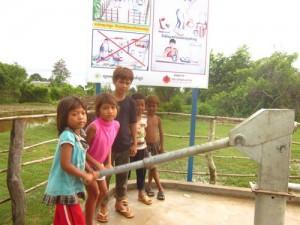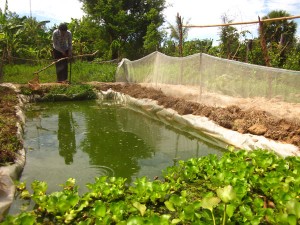
According to UNICEF’s 2006 report “Progress For Children: A Report Card on Water and Sanitation,” only 35% of Cambodia’s rural population has access to improved drinking water sources, leaving the remaining 65% vulnerable to life-threatening infectious disease – with children under 5 at the greatest risk.
Often poor Cambodians have to buy water or spend valuable work hours fetching it. The cost is up to $30 or in-kind labour per month for a typical family. This expense has a severe impact on communities, where 80% of families cannot afford to pay for more than two days of rice at a time.
Wells drastically reduce the financial burden on the rural poor, and mean villagers can grow vegetables during the dry, drought-prone season, which can last from eight to ten months per year. Availability of fresh vegetables has helped reduce malnourishment. Plus wells help villagers through frequent and extreme drought and flooding due to climate change and deforestation.

Lack of safe drinking water poses a serious threat to the lives of millions in Cambodia. Young children are most vulnerable to water born diseases such as typhoid and amoebic dysentery. When a family member is sick, it’s usually the girls who have to drop out of school to care for them or earn a living. In the poorest families, this may see a young girl entering a trafficking ring, where she can end up in the worst forms of child labour, including the sex trade.
Lotus Outreach Australia (with the Cambodian Organisation for Children and Development) has built six wells, providing clean, safe water to over 1,600 people in seven communities.
Outcomes
Current monitoring shows that communities using the wells already have significant falls in cases of typhoid and diarrhoea, and a much higher school retention rate for young girls. In conjunction with the wells, accompanying training of the community, particularly in hygiene and use of water filters, has had a fantastic impact.
The project has provided positive financial outcomes too, which sees women setting up income generating projects such as growing mushrooms, mung beans, vegetable gardens for the home, and crops for sale.